11 Old and New Religions in the World: From Hinduism, Buddhism to Christianity
Last Updated: January 1, 2026
Tweet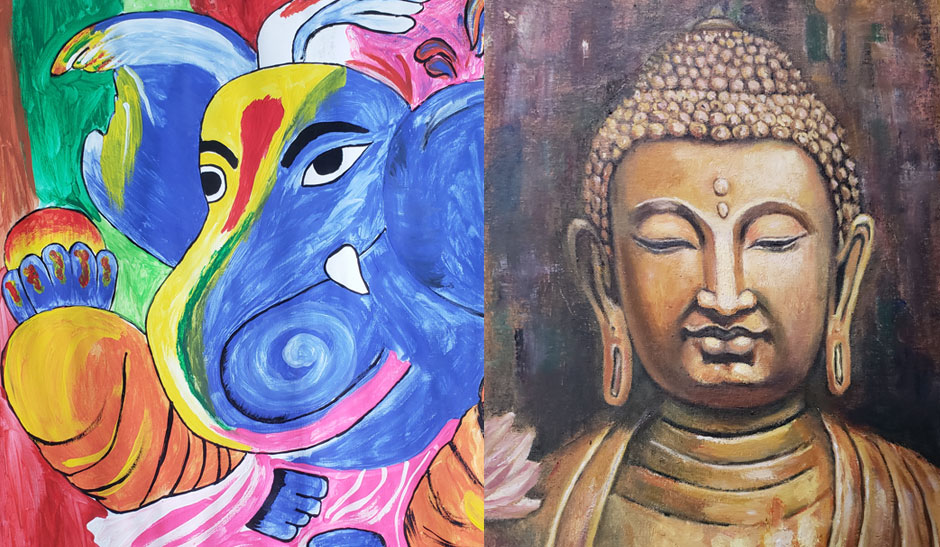
Photo: Original Paintings of Buddha and Ganesha by Artist Bikash and Anu
Religion has been a hope of salvation and offering guidance for centuries. Today we will explore some of the major world religions that have spread and changed over time. A world religion is one that has influenced history, is relevant today, and is inclusive of all people. The Abrahamic faiths like Judaism, Christianity, and Islam have exclusive beliefs, while the Eastern religions like Hinduism, Buddhism, Taoism, and Confucianism have flexible beliefs.
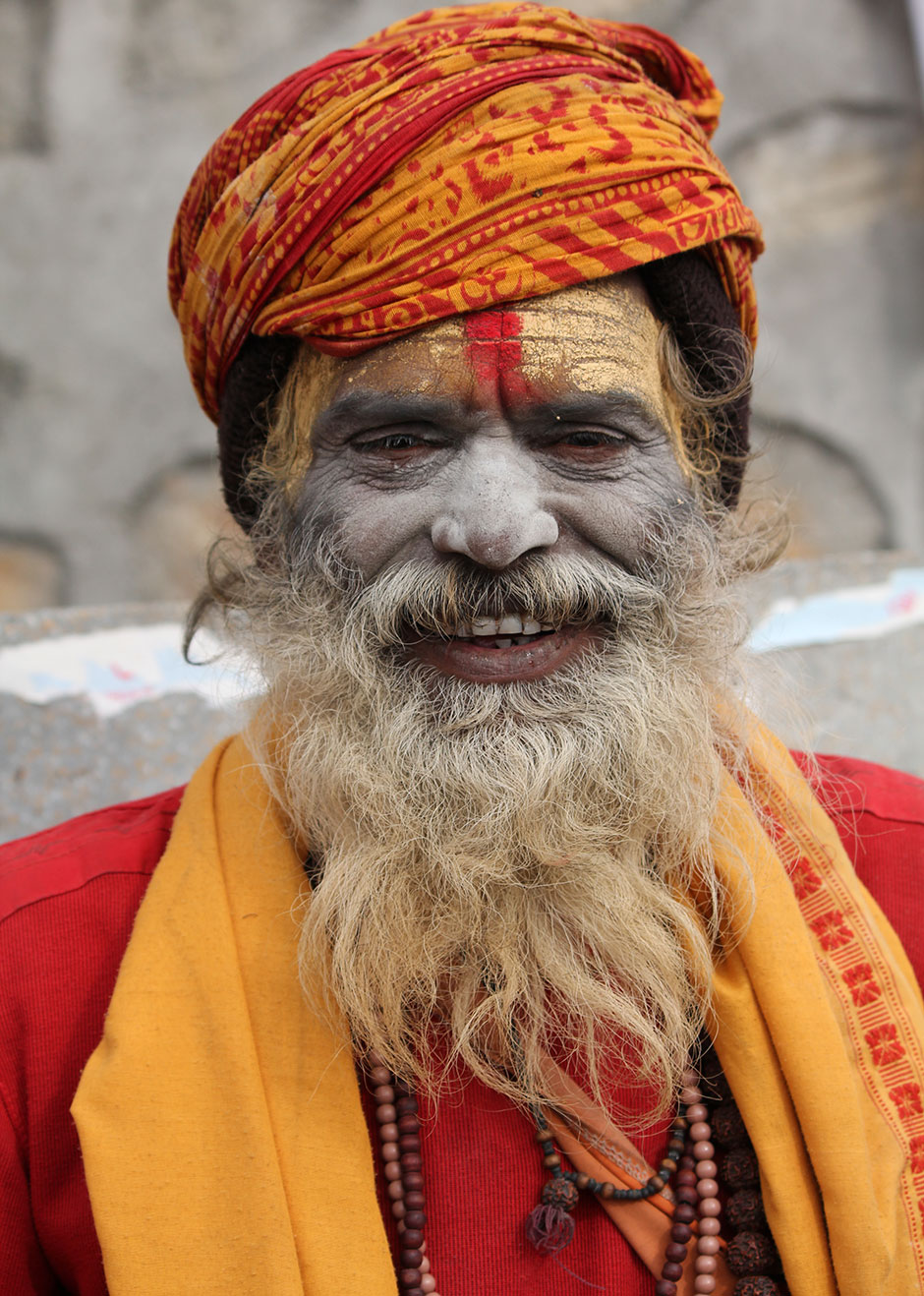
Photo: A hindu hermit sharing smile
For every spiritual enthusiast, the history and timeline of the religions is fascinating. Let’s embark into the timeline of these religions and explore the religions from oldest to newest ones.
Hinduism (15th Century BCE)
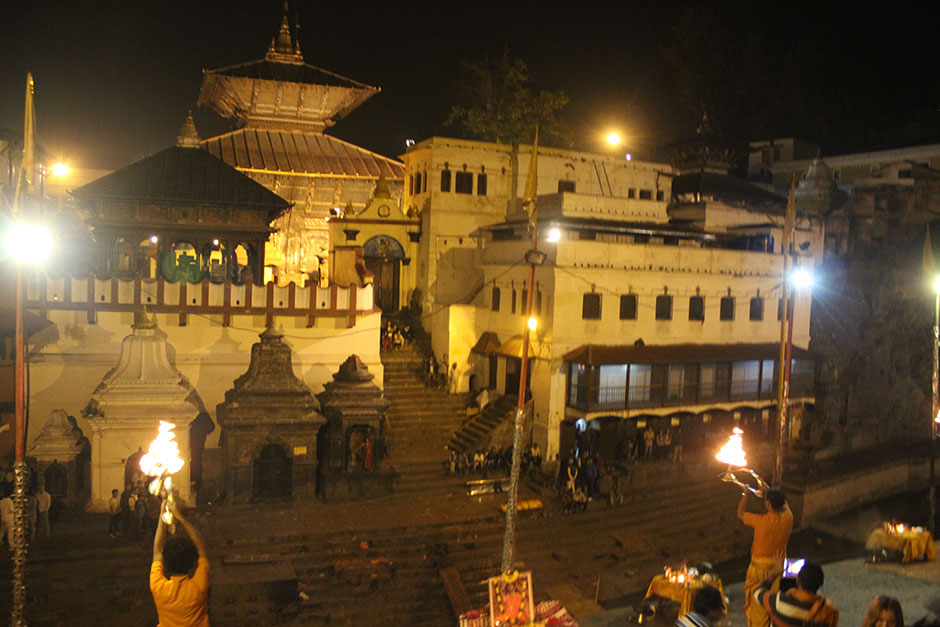
Photo: Hindu priests pandits doing rituals in front of a hindu temple
Hinduism, one of the oldest religions, emerged in the Indian subcontinent dating back more than 4,000 years, with the composition of the four Vedas by ancient Indian sages known as Rishis. While rooted in the Vedas, Hinduism encompasses diverse philosophical, scientific, artistic, and political concepts. Followers revere the permanent authority of the Vedas, although opinions differ among philosophical schools and Brahmanic traditions.
Hinduism, with 811 million followers, evolved from diverse beliefs of Brahmins, ascetics, and yogis along Indian rivers, creating a complex faith with many gods and demons. The term Hinduism came from Europeans, and the religion has polytheistic, monotheistic, and atheistic forms based on texts like the Vedas and the Ramayana. It has the caste system, Dharma, karma, reincarnation, and deities like Vishnu and Shiva.
Please click here to get the complete details on available programs, activities, duration, cost, benefits and the rest of it.
Get More Info Now »
Jainism (6th century BCE)
Jainism, originating around the 9th or 10th century BC in India, was founded by Rishabhanatha and further developed in the 6th century BC by Mahavira, its last Tirthankara, who established enduring principles. Jains seek enlightenment and nirvana, following Tirthankaras as guides. Worship involves mantra recitation and temple offerings.
Buddhism (6th to 7th century BCE)
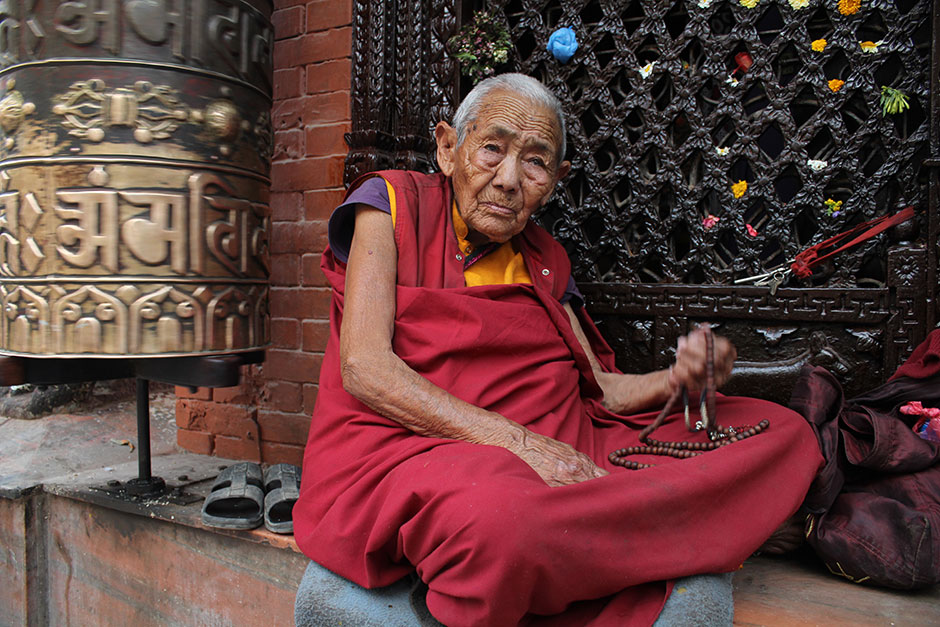
Photo: A buddhist devotee sitting besides prayer wheet in temple
Buddhism is a religion and philosophy that emerged in the Indian subcontinent in the 6th century BC from the teachings of Siddhartha Gautama, who became known as the Buddha after his enlightenment. Buddhists practice meditation, rituals, and ethical principles to attain liberation from suffering. Buddhism does not worship a creator god, but venerates the Buddha as an exemplary teacher and guide.
Buddhism, with 360 million followers now, initially appealed to those oppressed by the caste system in ancient India, and spread through King Ashoka's support (3rd century BC) to Sri Lanka and beyond. It split into different schools with different emphases. Most Buddhists live in Asia, with China having 100 million and India only seven million, but Buddhism's peaceful teachings, philosophy, social innovations, compassion for Tibetans, and the Dalai Lama's leadership have attracted Western followers.
Zoroastrianism ( 7th century BCE)
Zoroastrianism is an ancient monotheistic religion that originated in Persia (modern-day Iran) from the prophet Zoroaster or Zarathustra. It worships Ahura Mazda, the creator god, and teaches moral dualism between good and evil. Zoroastrians believe in free will, eternal souls, and divine fire. The religion's sacred texts are called the Avesta and were written after centuries of oral transmission.
Taoism (8th Century BCE)
Taoism is an ancient Chinese religion and philosophy dating back to the 7th century BC that is based on the existence of the Tao, or the origin of everything. Key Taoist texts include the Zhuangzi, Dao De Jing, and Liezi, and important practices involve a libertarian ethics, a sense of yin-yang balance, quietest mysticism, and naturalism seen across literature, medicine, art, and calligraphy.
Taoism, with 385 million followers now, began with Lao-tse, a critic and archivist who left his Chou homeland (Henan). Religious Taoism mixed "Tao-te-king" with folk religion, gods, ancestors, and shamanism. Lao-tse became a divine sage and a Buddhist. Taoist monasteries practiced Tai Chi as meditation.
Judaism ( 9th to 7th Centuries BCE)
Judaism is a religion that believes in one God who gave his divine law to Moses, the prophet of Israel, and wrote it in the Torah, the first part of the Tanakh or Hebrew Bible. It started between the 9th and 7th centuries BC among the descendants of Abraham, Isaac, and Jacob, who made a covenant with God. Judaism has different ways of understanding God and his law over time, but the Torah is still the main source of morality and theology for most Jews today.
Judaism, with 14.4 million followers, started with Moses and the Exodus from Egypt, forming the biblical religion and law. It has a covenant with God, Yahweh, who is the only Creator and ruler of history and the world. The Torah is the main source of belief and commandments. The "Shema" prayer expresses monotheism.
Confucianism (6th Century BCE)
Confucianism is a Chinese philosophical, moral, and political school that originated in the 6th century BC. It was founded by the philosopher Confucius, who taught that the way to achieve a harmonious society is through education, moral virtue, and respect for tradition. Confucianism became the state ideology of China during the Han dynasty and has had a profound influence on Chinese culture and society for centuries.
Confucius, from a humble noble family, became a tutor and a minister, founding the main ethical system in China .He set five relationships, promoting duties and humanity among father, husband, elder brother, friend, and master and their counterparts. Confucianism became a state doctrine in the Han Dynasty, affecting civil servants and combining administration and religion.
Mithraism (2nd Century BCE)
Mithraism is a mysterious cult that originated in Persia in the 2nd century BC and spread to the Roman Empire, where it was popular among soldiers and businessmen. It was based on oral and initiatory rituals that involved the god Mithras, who came from the Iranian world.
Christianity (1st Century)
Christianity is an Abrahamic monotheistic religion based on the life and teachings of Jesus of Nazareth, who Christians believe is the Son of God. Christianity began in the 1st century in the Roman province of Judea and its central beliefs are the resurrection of Jesus from the dead, his divinity, and his role as the savior of humanity. Christianity spread rapidly throughout the Roman Empire and later to the rest of the world.
Christianity is a monotheistic religion that originated with the teachings of Jesus of Nazareth. The Bible is the sacred text of Christianity. It is divided into two parts: the Old Testament, which tells the story of the Jewish people, and the New Testament, which tells the story of Jesus Christ.Christianity has spread throughout the world and is now the world's largest religion, with over 2 billion followers. It has had a profound impact on art, music, literature, and culture.
Please click here to get the complete details on available programs, activities, duration, cost, benefits and the rest of it.
Get More Info Now »
Mandaeism (2nd Century)
Mandaeism is a monotheistic religion that emerged in the 2nd century and follows John the Baptist as the main prophet. It has ancient manuscripts that show a dualistic view of creation and reject Jesus, Abraham, and Moses. It practices river baptisms like John did for Jesus. It is based on Gnosticism and originated in Jerusalem, but moved to Mesopotamia and later to other countries.
Islam (7th Century)
Islam is a monotheistic religion that started in the 7th century CE by Muhammad, who was born in Mecca and became a prophet after receiving a revelation from God. He preached in Mecca but was persecuted and migrated to Medina in 622 CE, the start of the Islamic calendar.
Islam, with 1.2 billion followers. Muhammad’s teachings, in the Koran's 114 suras, include biblical stories and prophets like Abraham, Moses, and Jesus. The "five pillars" are the main practices for salvation: faith, prayers, almsgiving, fasting, and pilgrimage.
In a Nutshell: Old and New Religions in the World
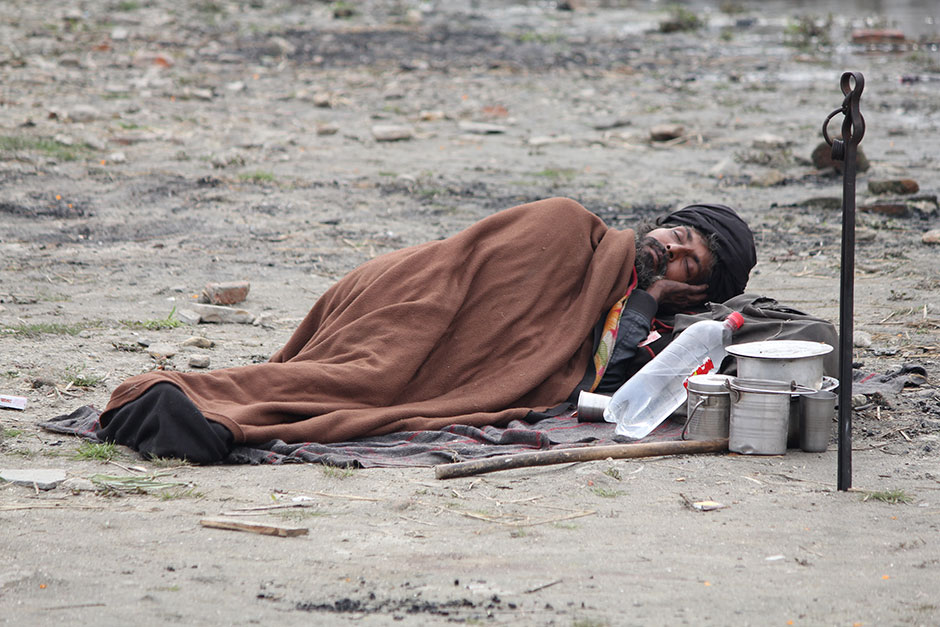
Photo: A hindu hermit lying beside the bank of holy river
So we could see that religions have been part of people’s lives for centuries. Religions have been evolving. Religion is not static, but dynamic. It is not only that new faiths and spiritual movements are appearing, but also that the old faiths are adapting and taking on new social and cultural functions.
We hope this story will be helpful to you to understand the timeline of different religions. From oldest religions of Hinduism , to recent but highly followed Christianism to most appreciated Buddhism in recent days, the journey of every religion is fascinating for every spiritual enthusiast.
Frequently Asked Questions (FAQs)
Which is the oldest religion?
Hinduism is the world's oldest religion.
What are the older religions?
Along with Hinduism, Jainism and Buddhism are also some of the older religions.
Which is newest religion in the world?
Baháʼí Faith is believed to be the newest religion.
Please click here to get the complete details on available programs, activities, duration, cost, benefits and the rest of it.
Get More Info Now »


